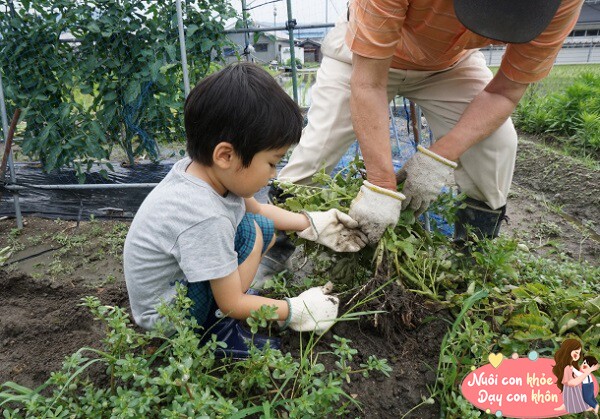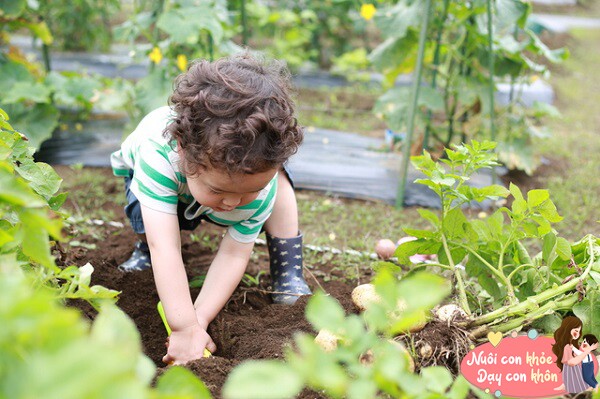While raising children, some parenting methods that seem loving can unintentionally harm them.
Professor Li Meijin once said: Be brave before the age of six and wise after the age of twelve.
From birth to age six, nurturing and educating children during this phase is crucial. This includes scientific nurturing, companionship, and habit formation, among other things.
Everything parents teach their children will be reflected in every aspect of their later life. Before the age of six, parents should refrain from doing these four things for their children, as they will impact their future.

Don’t do things that your child can do for themselves
Doing everything for your child inadvertently takes away their opportunity to develop their abilities and reduces their problem-solving skills.
This implies that parents are more competent and experienced and do not trust their child’s abilities.
The English psychoanalyst, Winnicott, proposed the concept of the good-enough mother.
According to Winnicott’s theory, a child’s psychological development goes through three stages: absolute dependence, relative dependence, and independence.
– The stage of absolute dependence is from 0 to 6 months.
– The stage of relative dependence is from 6 to 24 months and can last longer.
– Towards independence, after the age of two, the process of transitioning from relative dependence to independence is continuous, and each child will exhibit different characteristics.

Don’t do things that your child can do for themselves.
Assessing the characteristics of the growth and development stage, after the age of two, a child can walk independently and learn to grasp objects with their hands. Their sense of independence becomes stronger.
At this stage, parents need to learn to let go reasonably and create space for their child to explore. As Dr. Montessori said, We have become accustomed to serving children, which not only makes them dependent but also hinders their development. Because this reduces their sense of independence, initiative, and useful creativity.
Therefore, parents should not do things for their children that they can do for themselves.

Don’t shield your child from making mistakes
It is normal for children to make mistakes. Don’t be afraid of them doing so, as it is a necessary process for growing up.
From birth, children start using their senses to explore and be curious about their surroundings.
Dr. Montessori points out that children are natural sensory learners and explorers, with the peak of this stage being from 0 to 6 years old. This is a continuous process of discovery and growth.
Mistakes are inevitable in this process, so parents should be tolerant and patient with the mistakes their children make.

Don’t shield your child from making mistakes.
Parents can allow their children to do things within a reasonable scope and encourage them to complete tasks independently. Even if the outcome is not perfect, children learn a lot and gain life experience through the process of making mistakes.
For example, for children aged 2 to 3, let them try to dress and put on their socks themselves. Allow 4-year-olds to help with dishes and washing up; this can foster a good sense of self-care.
In life, when children want to do something challenging, parents should not think of stopping them immediately. This is a precious process of exploration and discovery. Even if they make mistakes, don’t rush to complain harshly. Instead, teach them how to recognize and learn from their mistakes.
Through continuous effort, trial and error, and the accumulation of experience, children will mature faster.

Don’t suppress your child’s emotions
Everyone has their own emotions, but sometimes, a child’s emotions are ignored, suppressed, or even ridiculed.
Psychologist Rudolf states: The way parents react to their child’s emotions plays a crucial role in their future development.
Many parents fall into emotional traps
during the process of raising their children.
Educating children based on emotions will not allow for an objective assessment of the issue or an effective solution.

Don’t suppress your child’s emotions.
Freud once said: Unexpressed emotions will never disappear. They are simply buried alive, and one day they will erupt in even worse ways.
The World Mental Health Organization once conducted an interesting survey and concluded that over 70% of our emotions will attack
our bodies, causing us to digest
our emotional suffering.
Emotions are not a disaster; they are an essential part of the human experience. Therefore, when children express their emotions, whether positive or negative, parents should accept, understand, and teach them how to channel their emotions in a positive direction.

If your child is facing hardship, don’t rush to intervene
When we are young, parents often wish to instill courage in us to face challenges when we enter society. The purpose of letting children endure hardship is to enlighten their minds, change their thinking, and foster maturity.
Parents should understand that greenhouse flowers cannot withstand the wind and rain, and a child raised in an overly protected environment will suffer more in society due to their weak wings.
Therefore, parents with a long-term vision should allow their children to learn how to endure hardship
, especially when it comes to self-reliance, self-care, and self-discipline.

If your child is facing hardship, don’t rush to intervene.
A psychologist once said: For people to mature, they must have a reason, and their efforts and accumulation must be several times that of ordinary people. Different levels of passion will lead to different levels of success.
There is no such thing as natural success in this world. Children must be allowed to endure the hardship
of self-discipline. This is the foundation for their future development.
Life is full of ups and downs, and eventually, children will have to navigate their own world. Parents who love their children correctly will lay a solid foundation for self-reliance, self-discipline, high responsibility, and good problem-solving skills.
“Using Poverty to Teach Sons, Using Wealth to Raise Daughters: True or False? A Psychologist’s Perspective on Parental Misconceptions.”
“Use poverty to educate your sons and wealth to raise your daughters.” This age-old saying has its pros and cons, and understanding its implications is crucial for parents. A skilled psychologist sheds light on this dichotomy, offering insights to help parents navigate their children’s upbringing effectively.







































